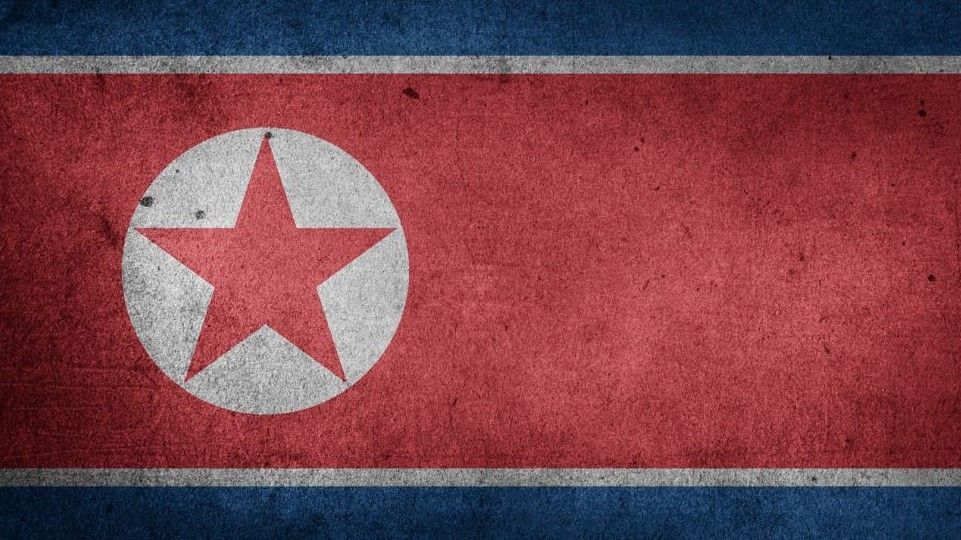After reflecting on the conclusion of The Boys season four, it became time to shift our focus back to its surprisingly good, and dare we say even better, spin-off series, Gen V.
Season two had a lot to build upon, especially considering the cliffhanger that season one left us with: Homelander ruining the fun and Billy Butcher pursuing the Supe-killing virus. While the series retained some elements that fans have come to love and appreciate more than its predecessor, season two showed signs of senioritis, suggesting that a series known for satirizing the management of other superhero franchises and their overflowing release schedules can’t monkey-see, monkey-do its way into mimicry.

Liked: Tribute to Chance Perdomo
 © Prime Video
© Prime VideoWhen cast member Chance Pedromo passed away, many fans questioned how Gen V would address the character of Andre Anderson. Instead of recasting the role, the showrunners chose to honor Perdomo by incorporating his character’s off-screen sacrifice into the storyline, making it the driving force behind the ensemble. Although this approach could have been clumsy, it ultimately resulted in a stronger narrative.
Not only did it closely resemble Ryan Coogler’s approach to addressing the passing of Chadwick Boseman in Black Panther 2, but it also highlighted a glaring blind spot in the shared mythology of both The Boys and Gen V: despite the presence of superpowered beings and the rise of fascism, racism persists, and having superpowers does not exempt one from being viewed as disposable by those in power.
It’s a delicate line to walk, but the show succeeded by illustrating that the powers that be at Vought are no different from any other fascist regime. Andre served as a significant catalyst throughout the season, with characters donning his hoodie and reminding others of his light, becoming a poignant high point in an otherwise lackluster season.
Liked: Hamish Linklater’s scene-stealing performance as Cipher
 © Prime Video
© Prime VideoBeing the new headmaster at God U, especially amid the looming threat of Homelander, required a commanding presence to rival the menace of that insecure, overpowered man-baby. Casting Hamish Linklater as Cipher in Gen V was a sensational decision. In a meta sense, it made perfect sense to have Linklater in this role, especially considering his recent subdued yet charismatic portrayal of Batman in Batman: Caped Crusader, which cleverly folded into the character’s mythos. And fans of Midnight Mass know that he has the power to convince anyone of anything with his monologues, regardless of their length. He truly has a way with words.
In this season of Gen V, Linklater’s performance as Cipher acted as a stimulus to the show’s quality while cranking the dial to 11 on the scale of villains you definitely don’t want to mess with in The Boys universe. His unnerving portrayal combined elements of Kilgrave from Jessica Jones with a heavy-handed dash of quirky Gen V humor and quips, elevating every scene he was in and stealing moments of the spotlight. It’s unfortunate that the show took some of the momentum away from his character toward the finale. We’ll discuss that later.
Liked: Emma addressing her body dysmorphia
 © Prime Video
© Prime VideoEmma had a tough break last season. Her powers to grow and shrink intrinsically tied into her body dysmorphia, and she basically ended up being the butt of the joke for everyone on campus. While she was off on her own side quest, the rest of the gang did their thing, converging every so often. That meant Emma got some much-needed character development to address the elephant in the room: her powers, their harmful triggers, and how to try to overcome them. In a show all about gross-out moments, it was nice to see this handled with a modicum of maturity and a deft hand, even as her antics this season were no less madcap than last. More of this, and less of that going-nowhere-fast love-triangle subplot, please.
Liked: The on-the-ground approach to The Boys‘ political anarchy
 © Prime Video
© Prime VideoWith the ever-expanding parody of our political landscape that The Boys represents, it’s refreshing to see its aftereffects and consequences from the ground level. This was one of the qualities that made season one of Gen V a welcome companion to The Boys. Gen V is not bound by source material, allowing it more freedom to explore themes without being confined to the mean-spirited plot developments typical of The Boys, which often boil down to someone being a sex pest and viewers having to watch how in exhaustive detail.
Gen V feels more thoughtful about its direction, pulling at your heartstrings and engaging your mind, rather than relying on a gross-out punchline that you have to brace yourself for because you know it’s coming. While The Boys often draws direct political parallels that sometimes feel like throwaway Saturday Night Live sketches, Gen V offers a more humorous perspective on the ramifications of Homelander’s overt fascism and its impact on the students at God U. The exploration of power dynamics between superpowered and non-superpowered students, along with the propaganda disseminated online and on campus, added an intriguing depth to what could otherwise have been a shallow direction for the season.
Liked: Jordan and Marie’s love story
 © Prime Video
© Prime VideoWe’re not made of stone! This budding relationship was hecking cute. Seeing them go from the kind of offhand, reluctant allies to close partners (and exes) was a pleasant bit of levity to witness in the show. Plus, seeing how their bond grew, even when they were literally pitted against each other in a school-approved superpowered fight with all the microaggressions (and aggression aggressions) lambasted at them for being who they are, was good shit. We love the tenderness that Jaz Sinclair, London Thor, and Derek Luh brought to these characters and eagerly await the fix-it fanfiction that’s no doubt being written as we speak.
Didn’t like: The unimpressive fights
 © Prime Video
© Prime VideoIt’s a pretty bad sign for a superhero show when you can comfortably look away to futz around on your phone whenever bouts of fisticuffs are on display and feel like you’re not missing much. For whatever reason, this season of Gen V lacked the sauce to make any of its fights feel like they were worth watching. Some dude gets shoved, hands are outstretched to, you guessed it, push more guys, and occasionally there will be copious amounts of blood.
It’s not that the show engendered desensitization to it all; it just looked a bit like a cheap afterthought in its presentation this season. It can sometimes feel like the show forgot that being the teen-forward CW version of The Boys doesn’t mean it has to look like it’s operating on a shoestring budget, cutting corners to make its action look worth the sliding-scale fee Prime Video is charging subscribers (with ads!).
Didn’t like: The uneven pacing
 © Prime Video
© Prime VideoBeing the second season of a show that spins off a series nearing its conclusion, unfortunately, means that Gen V‘s more methodical pacing from the previous season—characterized by gradually building mysteries—felt rushed this time around. While it’s understandable that The Boys can seem a bit rapid in its scene transitions as it approaches its climax, the quickened pace of Gen V diluted character development and weakened the overall viewing experience. Instead of focusing on its own storylines, it seemed to prioritize adding intrigue for The Boys, ultimately hurrying through its own narrative without fully resolving the plot points it introduced well.
At first, it made its characters feel pragmatic, almost to the point of voicing every possible contingency in their hastily made plans, as if they were battle-hardened, to avoid their plot against God U gong awry. But with each passing episode, it started to feel less like the shrewdness of the ensemble and more like the writers’ room laying everything bare on the table for things to either go south or just as planned, as a way not to try to explore them fully.
As a result, people wound up exactly where they’re supposed to be. Even when things went kaput, our heroes were allowed to just… leave and reconvene later to decide what to do. Any sense of stakes this season with the Gen V cast felt all but moot; instead, the main objective seemed to be helping The Boys carry the baton to its series finale, and that sucked.
Didn’t like: That whole Cipher switcheroo
 © Prime Video
© Prime VideoAs mentioned up top, Cipher is a cool concept for a character from top to bottom. Having the power to body-snatch anyone as if he were a protagonist in Quantic Dream’s The Nomad Soul is some scary stuff, and Linklater’s performance added to the weight of his imposing presence.
All respect to SpongeBob Broadway actor, Ariana Grande’s beau, and Wicked star Ethan Slater, but the reveal that he was actually Cipher the entire time completely took all the air out of the room. He’s an entirely different character when Slater shows up. Gone are the playful, catty quips, and all we’re left with is a kind of dorky guy trying to seem imposing, but he’s clearly not that guy. Generational aura loss, as the kids say.
Didn’t like: Clunky dialogue and humor skewing more toward The Boys’ worst bits
 © Prime Video
© Prime VideoLet’s be honest for a moment: The Boys‘ brand of humor is one short walk away from being Deadpool‘s, and not in the good way. They’re the kind of juvenile jokes that, once you’re subjected to them, don’t improve with a revisit. And sure, while comedy is subjective, the dissonance of edgy high school humor sliding out of the mouths of grown ass adults always makes The Boys feel a bit off and unserious. Gen V, with its school setting, makes its crass jokes feel a bit more at home because its shock-humor antics require less suspension of disbelief from the audience.
But for whatever reason, the types of jokes this season started to lose their armor, garnering either a cheap pity chuckle at the desperate attempt to be funny or no pop at all from viewers. It also didn’t help that this season suffered from “people don’t talk like that,” with a majority of its ensemble’s would-be funny men making the long walk to their jokes not worth suffering through.
Didn’t Like: The late-stage MCU-ification of Gen V
 © Prime Video
© Prime VideoAs we’ve expunged exhaustively at this point, Gen V‘s second season felt like The Boys crew finally buckled from talking out of both sides of their mouths about Marvel and DC Comics’ incessant need to franchise-build—all while showing signs of the same lackluster result. This time around, Gen V felt less like a refreshing offshoot and more like an episodic trailer to get folks hyped for the tentpole extravaganza that is The Boys.
We saw a lot of cameos around where The Boys characters were tantamount to TV bumpers advertising another show airing after the one you’re currently watching, rather than actually enriching the plot. It will be really embarrassing if the show isn’t picked up for a third season after spending so much time trying to beef up hype for The Boys‘ series finale. But honestly, what would be the point, since the narrative railroad for Gen V feels like it has effectively run out of track to continue on after however the hell The Boys wraps up? Watch the space, we guess.
Gen V season two is now streaming on Prime Video. The fifth and final season of The Boys arrives in 2026.
Want more io9 news? Check out when to expect the latest Marvel, Star Wars, and Star Trek releases, what’s next for the DC Universe on film and TV, and everything you need to know about the future of Doctor Who.










 English (US) ·
English (US) ·